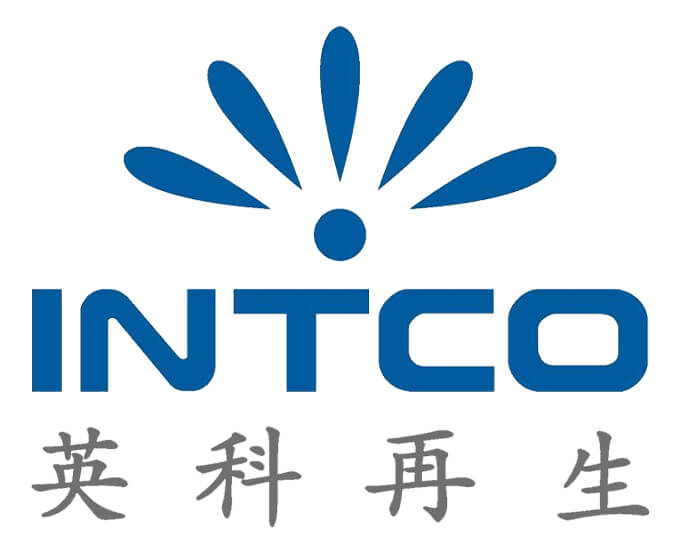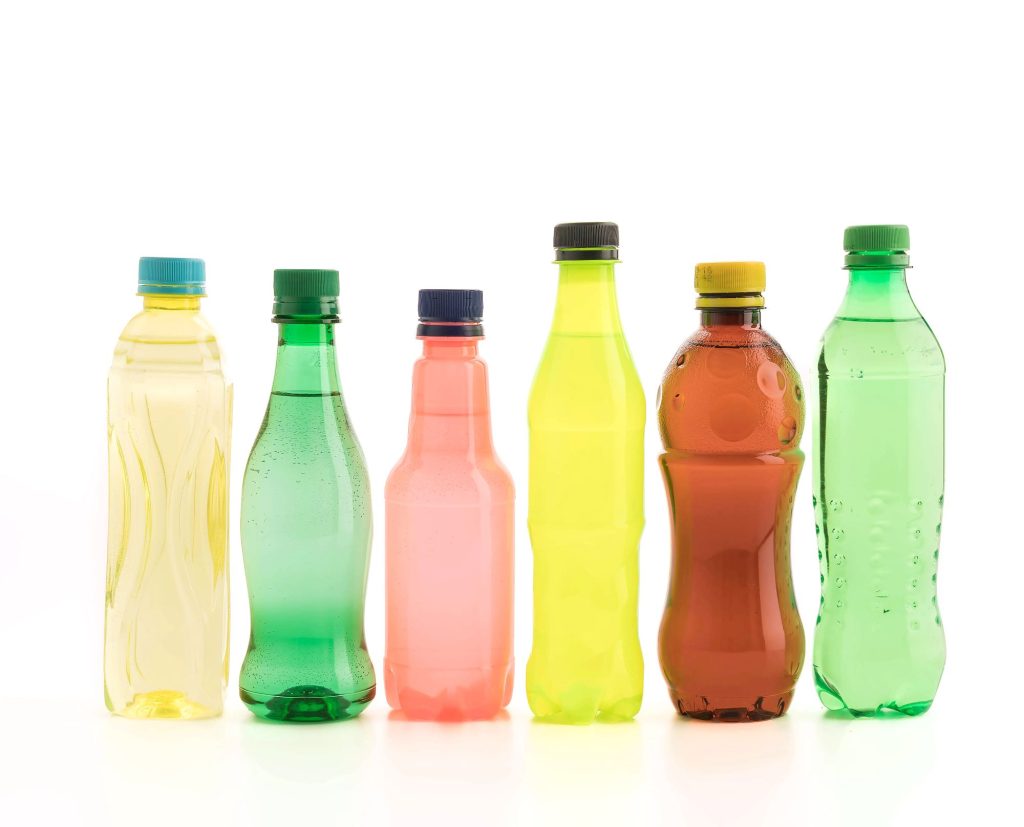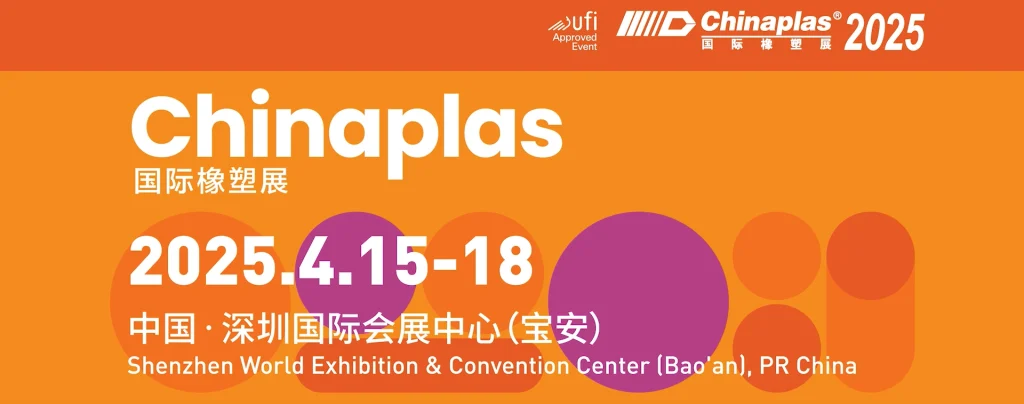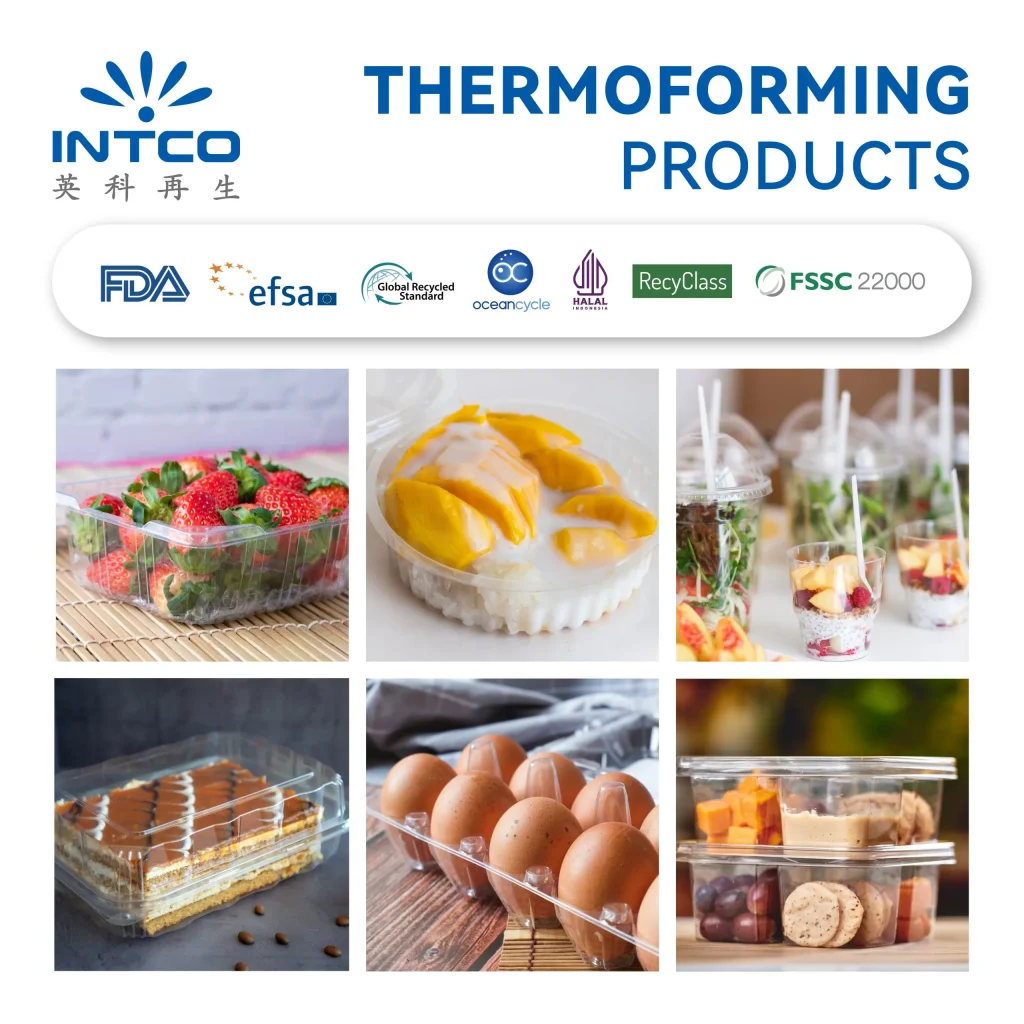RPET or recycled polyethylene terephthalate serves as an eco material sourced from used PET bottles after consumer use to address the increasing environmental worries by lessening plastic waste and preserving resources effectively in the packaging sector due to its sustainable attributes and capacity to adhere to strict industry regulations.
The Composition of rPET
rPET is produced by recycling clean PET bottles. The resin component remains polyethylene terephthalate, ensuring that the recycled material retains properties similar to virgin PET. This makes rPET an attractive choice for manufacturers seeking sustainable alternatives without compromising on quality.
Advantages of Using rPET in Food Packaging
PET’s use in food packaging is attributed to its approval by the FDA and EFSA for meeting food safety standards. Its ability to block flavors well and maintain clarity makes it a great choice for keeping food fresh. Additionally, its durability and adaptability in packaging styles add to its appeal.
Global Recycled Standard Certification for rPET Products
The GRS certification ensures that recycled content, in rPET products is authentic and supports concerns while also meeting corporate sustainability goals. Businesses can actively contribute to a circular economy by opting for GRS-certified Fiber-Grade R-PET Pellets.
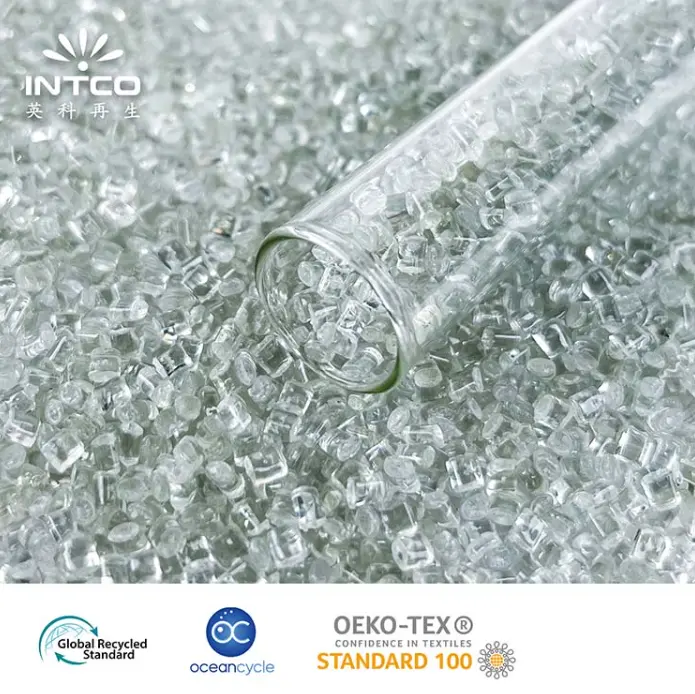
Exploring the Range of Recycled RPET Products Available
The flexibility of recycled PET goes further than packaging; it has various uses in different sectors, which makes it a key element in promoting eco-friendly production practices.
Types of RPET Products for Various Applications
A variety of rPET items are offered in styles to meet various industrial requirements, ranging from bottles to thermoformed trays, providing choices suitable for single-layer and multi-layer uses featuring different levels of recycled materials.
Sustainable Fabric Options with RPET
rPET presents itself as an eco-friendly option for textile manufacturing in the industry sector instead of the traditional packaging realm due to its durability and sustainability features, which help lessen the ecological footprint significantly while maintaining performance akin to regular materials on the market.
Recycling Process and Ease with RPET Fabrics
The recycling of rPET fabrics has been optimized to transform post-consumer waste into new materials effortlessly. This simplified recycling procedure boosts the attractiveness of the material as an option, for manufacturers looking to reduce their environmental impact.
Looking for recycled plastic solutions for your business? Intco Plastic provides customized solutions to meet a variety of industry needs with their knowledge and seamless transition to sustainable materials.
When you take these aspects into account, you can figure out if rPET or another recycled material such as R-PS-B-Yellow-02 aligns better with your particular requirements and goals for sustainability.
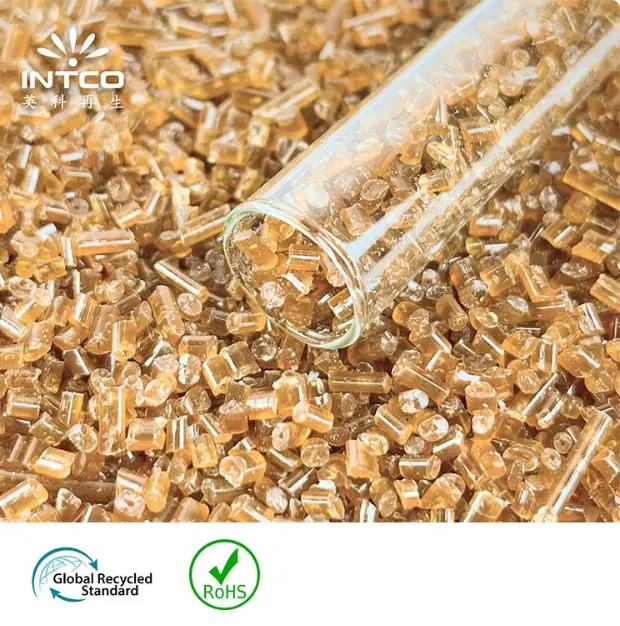
What is rPS and How Does it Compare to rPET?
Post polystyrene products are the source of recycled polystyrene (also known as rPS) which possesses unique qualities that make it an attractive option for different uses and applications. Its growing reputation stems from its ability to support eco-initiatives and practices.
Basics of rPS
RPS mainly consists of reused polystyrene obtained from sources like foam packaging products. The resin part stays as polystyrene, which helps the recycled material retain qualities akin to its form. This aspect makes rPS a feasible choice for companies seeking eco materials that do not compromise on performance.
Comparing the Benefits of rPS to rPET
When comparing rPS with rPET for uses and applications, in industries concerned with reducing plastic waste and promoting sustainability, factors to consider emerge that impact their specific benefits.
RPET finds use in food packaging as it boasts FDA and EFSA approvals that guarantee its safety for food contact purposes, while rPS’s popularity in consumer goods packaging stems from its lightweight design and exceptional insulating capabilities.
Which Material Should You Choose: rPET or rPS?
When deciding between rPET and rPS, it all comes down to your needs and goals for the project at hand, as each material comes with its own set of benefits tailored to various industrial uses.
Factors to Consider When Choosing Between rPET and rPS
Here are some factors to consider when making decisions:
- Application Requirements: Determine the primary use of the material—whether for packaging, textiles, or other purposes—and assess which recycled plastic meets these needs effectively.
- Environmental Impact: Evaluate the sustainability benefits each material offers in terms of reducing waste and conserving resources.
- Regulatory Compliance: Ensure that the chosen material complies with industry standards and certifications relevant to your sector.
- Cost Efficiency: Consider the economic aspects associated with sourcing and processing each recycled material.
Considering these factors will help you make an informed decision that supports your operational objectives and sustainability goals.
Industry Trends and Innovations in Recycled Materials
The world of recycled materials keeps changing due to progress and stricter regulations, leading to improvements in recycling methods that enhance the quality and usability of materials such as rPET and rPS.
New technologies are making recycling more effective by improving the quality and performance of plastics through better sorting processes and using advanced separation technology to enhance the end products’ overall quality.
Furthermore, there is an increasing inclination towards embracing reprocessing methods like depolymerization, which improves the recyclability of materials such as PET. These advancements offer chances for businesses to incorporate environmentally friendly approaches into their activities.
Looking for ways to use recycled plastics? Intco Plastic offers customized solutions to meet industry requirements with a focus on sustainability and efficiency.
To sum up, the decision-making process between Fiber-Grade R-PET Pellets or R-PS-B-Yellow-02 for your business needs hinges on understanding your requirements for the most suitable recycled material.
Finding the Right Solution for Your Needs
Deciding between rPET and rPS depends on analyzing factors carefully to meet your specific needs and sustainability objectives, as each material comes with its unique benefits.
Evaluating Material Performance and Suitability
If you’re deciding between rPET and rPS materials, here are some factors to think about:
- Performance Characteristics: Analyze the performance attributes of each material about your product’s demands. For instance, if high transparency and flavor barrier properties are crucial, rPET may be more suitable. Conversely, if insulation properties and lightweight features are priorities, rPS might be a better fit.
- Sustainability Goals: Consider how each material fits in with your company’s goals, for sustainability. Choosing between rPET and rPS can help lessen plastic waste; however, considering their effects will be essential based on their life cycle and recycling effectiveness.
- Industry Standards: Ensure that the chosen material complies with relevant industry standards and certifications. For food-related applications, rPET’s FDA and EFSA certifications offer assurance of safety for food contact.
Collaborating with Experts for Optimal Solutions
Collaborating with professionals about recycled materials can offer valuable perspectives on choosing the best option for your specific requirements. Intco Plastic and similar companies excel in providing encompassed solutions tailored to various industry needs. Their proficiency can assist you in making decisions and smoothly transitioning to eco-friendly materials.
Additional Resources for Sustainable Material Solutions
Exploring sources can improve your grasp of eco-friendly materials such as rPET and rPS, helping you make well-informed choices and encouraging fresh thinking in your sustainability efforts.
Educational Platforms and Industry Reports
You might want to check out platforms and industry reports that offer insights into the latest developments in recycled materials, to get a better understanding of the best practices and emerging technologies driving sustainable manufacturing forward.
Networking Opportunities with Industry Leaders
Attending networking gatherings with experts in the field can help share ideas and foster cooperation among individuals involved in utilizing recycled materials in their businesses, offering insights and sparking fresh ideas for addressing sustainability issues creatively.
To sum it up nicely, choosing between rPET and rPS involves considering your requirements in line with industry norms and sustainability targets. With the help of advice from businesses such as Intco Plastic and making the most of the resources at hand, you can confidently decide in a way that meets your operational goals and environmental responsibilities.
